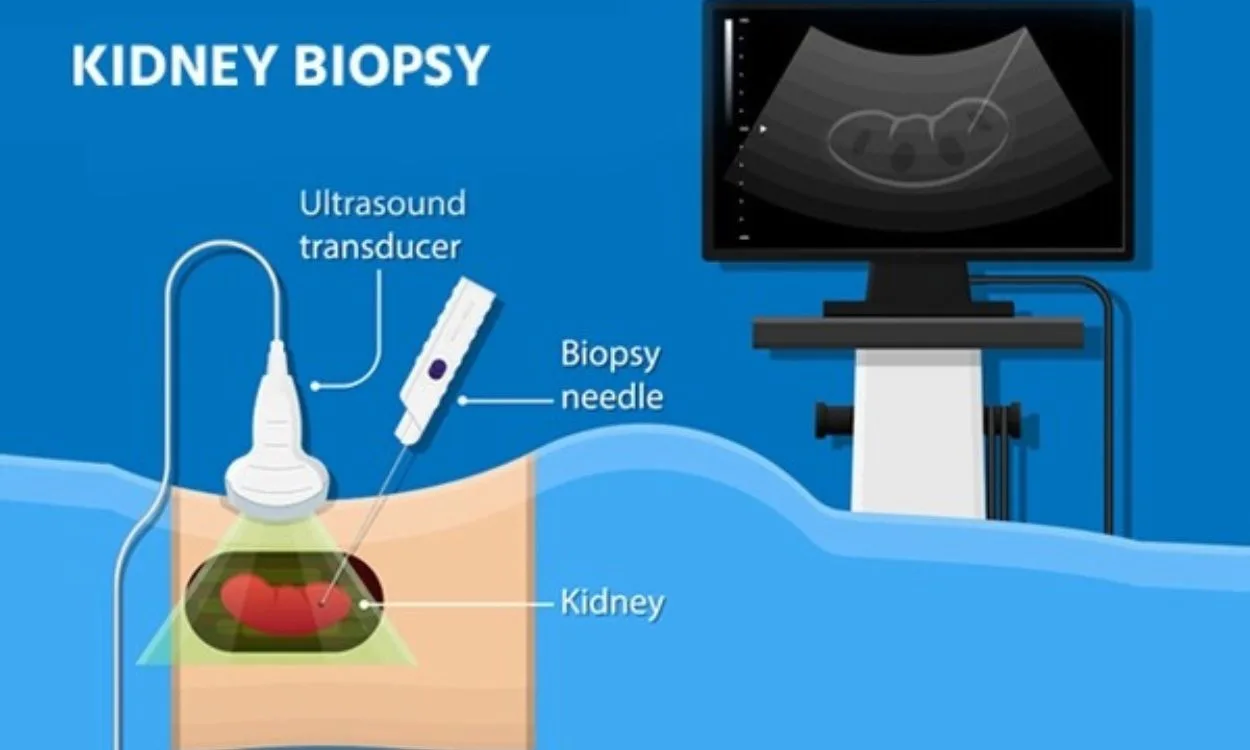How is a kidney biopsy procedure conducted?
Introduction to kidney biopsy
- A kidney biopsy is a medical procedure used to obtain a small sample of kidney tissue for examination under a microscope. It is performed to diagnose the cause of kidney disease, determine the severity of the condition, and guide treatment decisions.
- The procedure is typically recommended when blood or urine tests indicate a potential kidney problem, or when imaging studies reveal abnormalities in the kidneys.
Preparing for the procedure
- Before the biopsy, the patient’s medical history and current medications are reviewed to ensure they are not taking any blood-thinning medications that may increase the risk of bleeding during the procedure.
- Blood tests may also be conducted to assess the patient’s kidney function and clotting ability.
Conducting the kidney biopsy
- The patient is asked to lie on their stomach on a special biopsy table to expose the lower back, where the kidneys are located.
- The skin over the biopsy site is cleansed thoroughly, and a local anesthetic is administered to numb the area.
- Using ultrasound or CT scan guidance, the doctor inserts a biopsy needle through the skin and into the kidney to extract a small tissue sample.
- The procedure typically takes about 30 minutes, and the patient is monitored for several hours afterward to check for any signs of bleeding or other complications.
- After the procedure, the patient may be asked to lie on their back for a few hours to minimize the risk of bleeding.
Post-procedure care
- Following a kidney biopsy, the patient is advised to avoid strenuous activities and heavy lifting for a few days to allow the biopsy site to heal.
- It is important to drink plenty of fluids to help flush the dye used during the procedure out of the body and to prevent dehydration.
- The patient may experience some mild discomfort at the biopsy site, which can be managed with over-the-counter pain medication.
Risks and complications
- Although kidney biopsy is generally considered safe, it carries certain risks, including bleeding, infection, and damage to surrounding organs.
- Patients are advised to report any signs of excessive bleeding, severe pain, fever, or difficulty urinating to their healthcare provider immediately.
Introducing Fitpaa app for a healthier lifestyle Grab your opportunity to experience the transformative power of Fitpaa and take the first step towards your dream life by requesting a trial today!
- Fitpaa is a comprehensive health and fitness app that offers personalized guidance and support to help individuals achieve their health and fitness goals with guaranteed results.
- With a team of fitness planners, nutritionists, fitness coaches, and doctors, Fitpaa provides a tailored fitness plan called the Fitpaa Capsule, designed to optimize metabolism and achieve desired fitness outcomes.
- The Fitpaa app features a Calorie Meter for real-time guidance on calorie intake and expenditure, precision diet tracking, and smart workout trainers for effective exercise sessions.
- Fitpaa’s commitment to user satisfaction is reflected in its risk-free trial, lifetime validity of goal-oriented services, and a money-back guarantee for unsatisfactory results.
- Fitpaa Essentials, offering a Fitpaa Capsule based on individual BMI analysis, is available for free to support long-term health and wellness.
- Recognized as the no.1 mHealth app, Fitpaa has already transformed numerous lives by helping users improve their fitness, mental well-being, and manage various health conditions effectively.









